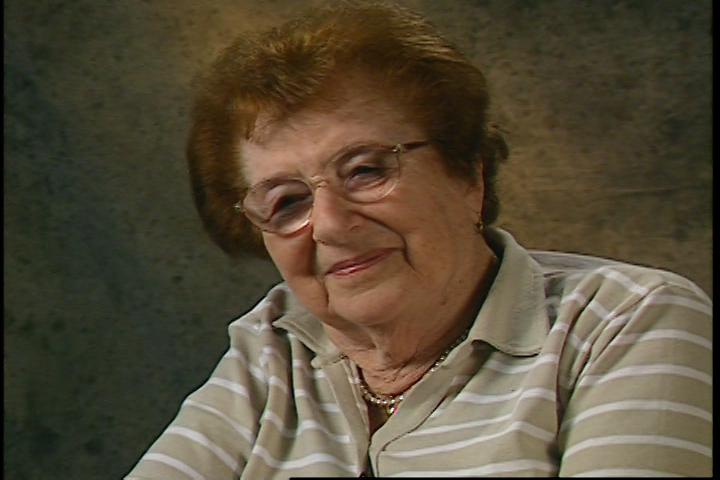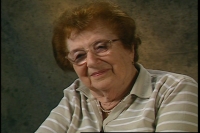We believed that no one would kill 100 people at once. How foolish we were – they murdered six million people

Stáhnout obrázek
Hana Fuchs Krása was born on 24 September 1923 in Prague. Her mother came from a wealthy Jewish family. Her father, who was also of Jewish origin, worked as the director of a food factory for Odkolek stores. Hana had a brother, three years older, with whom she enjoyed a carefree childhood until the end of the interwar years. Although her parents insisted that their children be well-behaved and study well, they also took them on holidays to the countryside or to the sea every year. After the Anschluss of Austria, her mother‘s sister with her husband moved from Vienna to Prague, bringing with them testimony of the atrocities committed against the Jews. It did not take long for the gradual restriction of Jewish life to catch up with them. After Hitler invaded Czechoslovakia, her father immediately lost his job. Hana stopped going to school and her mother arranged for her to work in a dress-making workshop. They only met with their friends on weekends and only at someone‘s house. Theatres, cinemas, parks and squares – Jews were suddenly forbidden to go to all these places. Hana had a boyfriend who was deported to Terezín. There, he put her on his list of relatives, and in this way the young girl got into the ghetto, where her then 88-year-old grandmother was already. She died just three weeks later. Soon afterwards her father, mother and brother also arrived in Terezín. While Hana worked in agriculture, which allowed her to improve her otherwise very limited access to food, her brother worked in a bakery, and even he was able to bring the family at least a piece of bread now and then. Thanks to his contacts in the ghetto, her father had earned a good position and worked in local government. However, as the people in charge of the Council of Elders changed, he gradually lost his influence, and in the end, he was unable to prevent the deportation of the family, of which only Hana remained in Terezín. Her father was executed by the Germans before he could even board the transport to Auschwitz. Her mother was probably sent to the gas chamber as soon as she arrived because she was considered too old. After the liberation of Czechoslovakia, Hana found herself completely destitute and had to fend for herself for the first time in her life. She lived in rented rooms and worked as a secretary. In 1947 she stayed briefly in the UK and on her return, she started to go out with Edgar Krása for the second time, who also survived Holocaust. Together they moved first to Israel and later to Boston in the United States. Hana died there in 2015. RECORDING SOURCE: https://collections.ushmm.org/search/catalog/irn514105
